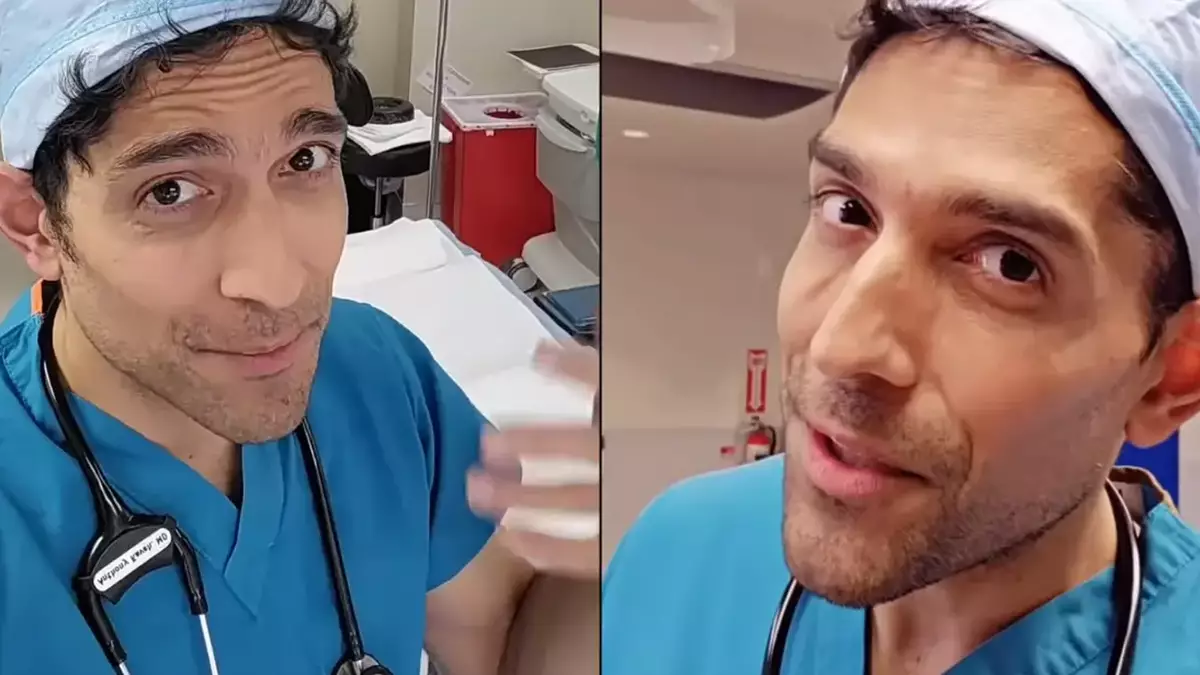The Truth About Anesthesia: It’s Not Just Sleep
Table of Contents
We’ve all been there: lying on that cold operating table, gown askew, a worried look on our face as the anesthesiologist tells us to count backwards from ten. The next thing we know, we’re waking up in recovery, feeling groggy, with a vague recollection of the pre-op nerves. But what exactly is happening during that hazy period?
Turns out, anesthesia is far more complex than simply drifting off into a peaceful slumber. As explained by a medical professional on the YouTube channel Medical Secrets, "You are absolutely correct, anesthesia is not sleep."
The expert goes on to demystify the process, explaining that a cocktail of medications is used to induce unconsciousness, ensuring the patient cannot feel pain. "We give you medication that turns off your brain…Then we give some medications that paralyze your body if needed… then we also give some medications to wipe your memories so that you’re less anxious and so that we minimize the risk of PTSD under anesthesia."
The National Institute of Health echoes this sentiment, stating unequivocally that anesthesia-induced unconsciousness is "not sleep." This distinction, while seemingly subtle, highlights the profound neurological differences between the two states.
Unsurprisingly, viewers reacted to the revelation with a mix of fascination and trepidation. Some expressed newfound awe for the intricate science behind anesthesia, while others confessed their newfound anxieties about upcoming surgeries.
One commenter summed up the general sentiment: "Sounds so much more scary when you describe it that way." Another chimed in, "You’re giving me anxiety rn describing this!"
For those who have undergone surgery, the experience can be both surreal and unsettling. “This is TRAUMATIZING!," shared one person, recounting a harrowing experience of waking up before their body, trapped in a state of consciousness with paralysis.
Anesthesia, while a cornerstone of modern medicine, remains a fascinating and complex process. Understanding its true nature can empower patients and fuel conversations about the intricate workings of our minds and bodies.
The doctor explained how the drug works (@MedicalSecrets / YouTube)
The Truth About Anesthesia: Beyond Sleep – An Expert Interview
**World Today News:** Thank you for joining us today, Dr. [Expert’s Name]. You’ve become well-known for clarifying complex medical topics on your YouTube channel, Medical Secrets, and your recent video on anesthesia has sparked a lot of conversation.Can you help our readers understand what anesthesia really is, and why it’s more then just “going to sleep”?
**Dr.[Expert’s Name]:** Absolutely! I think the biggest misconception is that anesthesia is simply sleep. While it might *seem* like sleep, the reality is much more intricate. Anesthesia is actually a carefully orchestrated suppression of various brain functions. We use a combination of medications to achieve this.
**World Today News:** What are those functions, and how exactly do these medications work?
**Dr. [Expert’s Name]:**
Think of the brain as a vast network of communication pathways.We use drugs that target specific areas, essentially silencing those pathways.This includes:
* **Unconsciousness:** We need to ensure the patient is fully unaware of what’s happening. This is achieved wiht drugs that depress certain brain regions responsible for consciousness.
* **Pain Relief:** Anesthetics block the transmission of pain signals from the body to the brain, preventing the patient from feeling any discomfort during the procedure.
* **Muscle Relaxation:** For many surgeries, muscle relaxation is crucial to allow surgeons to operate efficiently. We can use medications to induce paralysis,but this is onyl done when necessary and always carefully controlled.
* **Amnesia:** Some anesthetics have amnesic effects, meaning thay help patients forget the entire procedure, which can be beneficial in reducing post-operative anxiety and the risk of developing PTSD.
**World Today News:** That’s a lot to consider! Some viewers of your video expressed anxiety after learning about these different components. What would you say to those who are feeling apprehensive about upcoming surgeries?
**Dr. [Expert’s Name]:** I understand the apprehension.It’s natural to feel some anxiety about a procedure involving such complex interventions.However, it’s crucial to remember that these medications are incredibly safe and have been rigorously tested.
Anesthesiologists are highly trained specialists who continuously monitor a patient’s vital signs throughout the entire procedure, ensuring their safety and well-being. Modern anesthesia is amazingly precise and effective, allowing for complex surgeries to be performed with minimal discomfort and risk.
**World Today News:** you mentioned a “cocktail” of medications. Does this mean every anesthesia experience is the same?
**Dr. [Expert’s Name]:** Not at all! Every patient and every surgery is unique.The specific combination of drugs and dosages is carefully tailored to the patient’s individual needs, medical history, type of surgery, and even personal preferences.
That’s reassuring. Thank you, Dr. [Expert’s Name] for shedding light on such a complex and frequently enough mysterious topic. I think your explanation helps demystify anesthesia and hopefully reduce some of the anxieties surrounding surgery.
**(Optional)
**World Today News:** Dr. [Expert’s Name]’s YouTube channel,” Medical Secrets,” explores a wide range of medical topics in an accessible and engaging way. For those interested in learning more about anesthesia or other medical procedures, I encourage you to check out the channel.**

